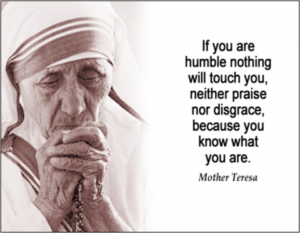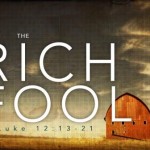 22nd Sunday in Ordinary Time
22nd Sunday in Ordinary Time
Psychology of the Virtue of Humility
One of the areas of my academic specialisation is positive psychology. It is a branch of psychology that focuses on wellbeing and happiness. My area of focus in positive psychology revolves around the concept of “character strengths.” Character strengths are nothing but what religious traditions have referred to as virtues. These include, among others: wisdom, self-control, forgiveness, hope, altruism, love, spirituality, responsibility, leadership, humility, etc. Psychologists ask, why religious traditions and cultures across the world have highlighted these virtues throughout known history of humanity, praising people who are paragons of these virtues and challenging people who have lacked these virtues? Is it because the practice of these character strengths provides gratification and wellbeing to the individual, and ensures the continuity of the human […]
Sunday Sermons
Sunday Sermons and Homilies
Sermon for 21st Sunday in Ordinary Time – Cycle C Homily
 The Narrow Door
The Narrow Door
21th Sunday in Ordinary Time (Lk13:22-30)
When you were in school, did you prefer easy-going teachers to demanding ones? I have been in formal education for 24 years and I generally preferred the demanding teachers, because most often I found the easy-going ones not only shallow but very “stingy” with marks to maintain the class average because they wanted to please all students!
In the gospel reading of today, Luke presents Jesus as a demanding teacher. This portrayal of Jesus is very unlike Luke. For instance, Matthew uses the phrase “grinding of teeth” (NJB), or in other translations, “gnash their teeth” (RSV), five times in his Gospel, whereas Luke uses it only once. And that happens to be in the gospel text of today. Being consistent within the Gospel of Luke, what is the central orientation of the Word of […]
Sermon for 20th Sunday in Ordinary Time – Cycle C Homily

Disturb us, Lord
20th Sunday in Ordinary Time (Lk 12:49-53)
Jesus said to his disciples: ‘I have come to bring fire to the earth, and how I wish it were blazing already! When I read the gospel reading of today, a phrase kept coming back to me very spontaneously. It was the first line of a prayer that I had heard before. I googled and came across this poem-prayer, written by a famous British sailor of the 16th Century, Sir Francis Drake:
Disturb us, Lord, when
We are too pleased with ourselves,
When our dreams have come true
Because we dreamed too little,
When we arrived safely
Because we sailed too close to the shore.
Disturb us, Lord, when
With the abundance of things we possess
We have lost our thirst
For the waters of life;
Having fallen in love with life,
We have ceased to dream of eternity
And in our efforts to build a […]
Sermon for 19th Sunday in Ordinary Time – Cycle C Homily

Spiritual Capital: Treasures in Heaven
19th Sunday in Ordinary Time (Lk 12:32-48)
I am intrigued by what one of my former students does for a living. He predicts stock-markets. He appears on TV at breakfast shows forecasting trends in the market and advising investors. He trains people on how to make money sitting at their homes buying and selling shares. I watched a few of his TV-shows. It was all about how to get rich quickly and effortlessly! And his ideas sell.
In this climate of quick money, I asked myself how would people look at religion and spirituality. We are forced to speak a language of economics even in the context of faith: hence my reflection today is on “spiritual capital”. I am aware that this term is already in use in different circles. But the way I […]
Sermon for 18th Sunday in Ordinary Time – Cycle C Homily

Seek the Things that are in Heaven
18th Sunday in Ordinary Time (Lk 12:13-21)
I begin with a story from Tony de Mello:
“What stone?” asked the sage.
“Last night I was told in a dream that if I went to the outskirts of the village at dusk, a sage would give me a stone that would make me rich forever.”
The sage rummaged in his sack and, pulling out a stone, he said, “Your dream probably referred to this one. I found it in the forest yesterday. Here, it’s yours if you want it.”
The man gazed at the stone in wonder. It was the largest diamond in the world—the size of a man’s head.
All night he tossed about in bed. At break of day, he woke the sage and said, “Give me the wealth that makes it possible for you to give away this […]